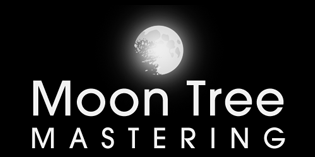When it comes to the final stage of music production, mastering plays a vital role in giving your tracks that polished, professional sound. It is during the mastering process that a skilled engineer fine-tunes your audio, making it ready for distribution and playback across various platforms. As an artist or producer, it’s essential to understand the master formats you need from your mastering engineer and why they are crucial. In this article, we will explore the different master formats and their significance, empowering you to make informed decisions about your music’s final presentation.
WAV (Waveform Audio File Format): WAV is the most widely used audio format for mastering purposes. It is a lossless format that preserves the highest quality of your audio, making it suitable for further processing, such as CD production or online distribution. WAV files maintain the original audio data without any compression, ensuring a faithful representation of your music.
MP3 (MPEG Audio Layer-3): MP3 is a popular compressed audio format known for its small file size and compatibility across various devices and platforms. While it is not ideal for the mastering stage due to its lossy compression, having a high-quality MP3 version of your mastered track can be beneficial for promotional purposes, sharing with others, or uploading to streaming platforms that require compressed formats.
DDP (Disc Description Protocol): DDP is a format specifically designed for CD manufacturing. It contains all the necessary data for creating a replicated or duplicated CD. DDP files include track markers, ISRC codes, and other metadata, ensuring accurate replication of your album. Many pressing plants require DDP files for CD production, making them an essential format to request from your mastering engineer.
FLAC (Free Lossless Audio Codec): FLAC is a lossless audio format that offers high-quality audio while reducing file size compared to WAV. It is a popular choice for digital distribution platforms that support lossless formats. FLAC files can be converted to other formats without any loss in audio quality, making them versatile for different distribution channels.
AIFF (Audio Interchange File Format): AIFF is another uncompressed audio format widely used in the music industry. Developed by Apple, it is the standard format for audio files on Mac operating systems. AIFF files are compatible with various digital audio workstations (DAWs) and provide excellent audio quality. If you primarily work with Apple devices or software, requesting AIFF files from your mastering engineer can ensure seamless integration into your workflow.
OGG (Ogg Vorbis): OGG is an open-source audio format known for its high compression efficiency. It is commonly used for web-based distribution and game development. While OGG may not be necessary for traditional music releases, if you plan to distribute your music for video games, podcasts, or interactive media, requesting OGG files alongside other formats can be advantageous.
AAC (Advanced Audio Coding): AAC is a lossy audio format widely recognized for its high audio quality at low bitrates. It is the default audio format for Apple’s iTunes and is also supported by other major platforms. Having AAC files of your mastered tracks can ensure compatibility with Apple devices and maximize the listening experience for your audience using iTunes or Apple Music.
Hi-Res Audio Formats: In recent years, the demand for high-resolution audio formats has grown significantly. These formats, such as FLAC or ALAC (Apple Lossless Audio Codec), support higher sample rates and bit depths, delivering an enhanced listening experience. If you cater to audiophiles or offer premium music releases, requesting high-resolution formats from your mastering engineer can provide your audience with the utmost audio quality.
Conclusion
Understanding the different master formats you need from your mastering engineer is crucial for delivering your music in the best possible way. Whether it’s WAV for uncompromised quality, MP3 for promotional purposes, DDP for CD manufacturing, or specialized formats for specific distribution channels, each format serves a unique purpose. Communicating your requirements clearly to your mastering engineer will ensure that you receive the appropriate formats to suit your needs and goals as an artist or producer.
FAQs
Can I convert my MP3 files to WAV for mastering?
Converting MP3 files to WAV for mastering is not recommended. MP3 is a lossy compressed format, and converting it to WAV won’t restore the lost audio information. It’s best to provide your mastering engineer with the highest quality source files available.
Do I need all the mentioned formats for my music release?
The formats you need will depend on your distribution strategy and target platforms. However, having a selection of formats like WAV, MP3, and high-resolution options can cover a wide range of requirements.
How can I determine the best audio format for my audience?
Consider your target audience and the platforms they use. Research the preferred formats for streaming services, digital stores, and any niche platforms you plan to distribute your music on.
Can I master my own music without a professional mastering engineer?
While it’s possible to perform basic mastering tasks yourself, professional mastering engineers bring experience, specialized tools, and an objective perspective to enhance the quality and commercial viability of your music.
Are there any additional formats I should consider for mastering?
Apart from the mentioned formats, it’s essential to communicate with your mastering engineer about any specific format requirements you may have based on your unique distribution plans or the recommendations of your target platforms.
